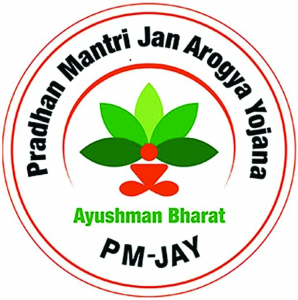Business
Government Cuts GST to Enhance Healthcare Access and Affordability

The Government of India has announced a significant reduction in the Goods and Services Tax (GST) rates for individual health and life insurance premiums, aiming to enhance healthcare accessibility and affordability. This decision, communicated by the Health Ministry on October 5, 2023, supports the existing Ayushman Bharat scheme and the PMJAY (Pradhan Mantri Jan Arogya Yojana) by promoting private insurance coverage, which is expected to lower out-of-pocket expenses for citizens.
The ministry emphasized that the GST rationalisation package reflects a balanced approach to taxation, designed with citizens’ needs in mind. By decreasing the tax burden on essential medical products and services, the government aims to make healthcare more accessible. “By lowering the burden on medicines, medical devices, nutrition, and insurance, while discouraging harmful consumption, the Government has taken a major step towards making healthcare more accessible, affordable, and preventive in nature,” the Health Ministry stated.
In a tweet, Union Health Minister J P Nadda praised the initiative, stating, “Under the visionary leadership of PM Narendra Modi, the Union Government has announced the Next-Gen GST reforms to support ongoing growth and development.” He noted that the reduced tax rates on essential products would enhance the ease of living for families and support small businesses across the country.
The GST rate for essential medicines has been cut from 12 percent to 5 percent or even to zero, significantly easing the financial burden on patients. This adjustment is particularly important for individuals managing chronic illnesses such as diabetes, hypertension, and cancer. Furthermore, the tax on services related to the treatment or disposal of biomedical waste has also been reduced from 12 percent to 5 percent, which will help streamline production costs in the pharmaceutical sector.
The Health Ministry detailed that the GST on key medical products, including anaesthetics, medical-grade oxygen, gauze, bandages, diagnostic kits, surgical gloves, glucometers, and thermometers, has also seen a decrease from 12 percent to 5 percent. This reduction will lower healthcare delivery costs for hospitals, diagnostic centres, and clinics, encouraging the use of modern diagnostic tools, especially in tier-2 and tier-3 cities.
Additionally, the GST on spectacles, spectacle lenses, and contact lenses has been reduced from 12 percent to 5 percent, making vision correction more affordable for a broad demographic, including students and elderly citizens. This move is expected to enhance productivity, considering that nearly 10 crore people in India are estimated to lack proper vision correction.
Moreover, the government has lowered the GST on gyms and fitness centres from 18 percent to 5 percent, which aims to promote fitness and support the *Fit India Movement*. This initiative aligns with the government’s commitment to tackling non-communicable diseases such as diabetes and obesity.
In a notable stance, the Health Ministry confirmed that no tax reductions were proposed for products widely recognized as harmful, including tobacco, pan masala, and sugary drinks. This decision underscores the government’s focus on preventive healthcare and public health.
Overall, these reforms are positioned not only to enhance healthcare accessibility but also to stimulate economic growth within the healthcare sector, strengthening India’s reputation as the “Pharmacy of the World.”
-

 World2 months ago
World2 months agoSBI Announces QIP Floor Price at ₹811.05 Per Share
-

 Science1 month ago
Science1 month agoNew Blood Group Discovered in South Indian Woman at Rotary Centre
-

 Lifestyle2 months ago
Lifestyle2 months agoCept Unveils ₹3.1 Crore Urban Mobility Plan for Sustainable Growth
-

 Sports1 month ago
Sports1 month agoBroad Advocates for Bowling Change Ahead of Final Test Against India
-

 Sports1 month ago
Sports1 month agoCristian Totti Retires at 19: Pressure of Fame Takes Toll
-

 World2 months ago
World2 months agoTorrential Rains Cause Flash Flooding in New York and New Jersey
-

 Top Stories2 months ago
Top Stories2 months agoKonkani Cultural Organisation to Host Pearl Jubilee in Abu Dhabi
-

 Science2 months ago
Science2 months agoNothing Headphone 1 Review: A Bold Contender in Audio Design
-

 Top Stories2 months ago
Top Stories2 months agoAir India Crash Investigation Highlights Boeing Fuel Switch Concerns
-

 Business2 months ago
Business2 months agoIndian Stock Market Rebounds: Sensex and Nifty Rise After Four-Day Decline
-

 Politics2 months ago
Politics2 months agoAbandoned Doberman Finds New Home After Journey to Prague
-

 Top Stories2 months ago
Top Stories2 months agoPatna Bank Manager Abhishek Varun Found Dead in Well









